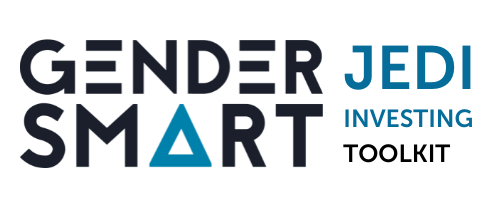Evaluating Diversity, Equity & Inclusion in Due Diligence
From Alliance Global Advisors: Questions General Partners should address when it comes to Diversity, Equity & Inclusion efforts within their organisations.
Due Diligence 2.0
Due Diligence 2.0 aim to catalyze movement of capital to BIPOC managers, the signatory asset owners, consultants, and financial intermediaries, on behalf of asset owners who value BIPOC manager inclusion, commit to making these specified shifts in their due diligence processes.
Asking the Right Questions to Guide Investments in Closing Racial Wealth Gaps
To determine which investments they make, Living Cities starts by asking themselves a series of questions whenever they evaluate a new transaction.
Illinois State Treasurer's Office Standardized Due Diligence Questionnaire
Illinois State Treasurer's Office Sustainability/Equity/Diversity and Inclusion Standardized Due Diligence Questionnaire
ILPA Standardized Due Diligence Questionnaire
ILPA Standardized Due Diligence Questionnaire for institutional investors.
The Questions LPs Can Ask for Due Diligence on Diversity and Inclusion in VC
From Diversity VC: A list of questions which Limited Partners can use to ask GPs at venture funds during the due diligence process to better understand their approach to diversity and inclusion. The first set of questions is taken from the ILPA guidance, the second has been compiled by Diversity VC in discussions with GPs and LPs in Europe and the US.
Adasina Social Justice Investment Criteria
The data-driven set of standards that guides Adasina's investment strategies to reflect social justice values and advance progressive movements for change.
The United States Prosperity Index 2021
The Legatum Institute’s United States Prosperity Index provides a comprehensive picture of prosperity for the 50 states of the Union and Washington D.C., as well as the 1,196 counties of 12 selected states: California, Colorado, Florida, Georgia, Iowa, Kentucky, Minnesota, Montana, Nebraska, New York, Oklahoma, and Texas.
Inequality Trends and Diagnostics in Kenya 2020
This report is a joint publication produced by the Kenya National Bureau of Statistics (KNBS) in partnership with the Eastern Africa research node of the African Centre of Excellence for Inequality Research (ACEIR) based at the School of Economics, University of Nairobi, with support from Agence Française de Developpement (AFD) and the European Union (EU). The report presents a comprehensive analysis of multidimensional inequality in Kenya over the period 1994 to 2016 using nationally representative survey data collected and released by the KNBS. The household datasets used in the analysis were derived from the 1994 Welfare Monitoring Survey (WMS II), the Kenya Integrated Household Budget Surveys for 2005/06 and 2015/16, the Labour Force Survey for 1998/99 and the 2009 Kenya Population and Housing Census. In addition, the report uses secondary data from local and international reports to enrich the information derived from sample surveys.
Ten Things to Know about Gender Equality
How can we ensure that the role of women in the workplace and in society is central to efforts to rebuild economies in the COVID-19 era, and that women do not fall further behind? As world leaders at the UN General Assembly assess progress, look ahead to recovery, and commemorate the 25th anniversary of the Fourth World Conference on Women and the Beijing declaration, McKinsey offered their perspectives on the ten things everyone should know about gender equality.
Diversity As $uperpower: The (Well-Known) Data Against Homogeneous Teams In Venture Capital
The data are clear: As with public companies, startup founder and investing teams that are diverse—specifically with more than one gender and/or one race or ethnicity represented—are more innovative and make more money. In fact, venture capital investing teams limited to any one gender and/or any one race damage innovation and risk limiting financial outcomes. This article summarises the steady stream of evidence published since 2013 indicates that when startup teams and venture investing teams embrace differences in gender, race, ethnicity, educational background, and/or professional experience, these heterogeneous teams outperform homogeneous teams.
The Investment Case for Board Diversity: A Review of the Academic and Practitioner Research on the Value of Gender and Racial/Ethnic Board Diversity for Investors
This paper from the Office of the Illinios State Treasurer seeks to examine the wealth of literature on the subject of whether and to what extent gender and racial/ethnic diversity affect the functioning of corporate boards and the performance of the companies they oversee, to provide further insight and render a judgment on the investment case for gender and racial/ethnic diversity on corporate boards. In summary, this paper concludes that the gender and racial/ethnic composition of corporate boards does indeed have a material and relevant impact on company performance and investors.
DEI Data Group: DEI Data Standard
In August 2020, the DEI Data Group commissioned a framework to monitor equity considerations in grantmaking, with a view to including the data in published grants information. This framework is not a judgement of organisations, it simply spells out the different categories that enable funders to collect data in a systematic manner to understand whether the reach of the funding and their funding practices are equitable. It will be used to inform funding strategies and specific funding strands/programmes, not individual funding decisions - except where it is explicitly a part of the fund criteria. The primary use will be for funders to monitor their grant programmes, but it is also anticipated that there will be wider use of a shared framework for sector analysis.
Social Equity Investing: Righting Institutional Wrongs
From Cambridge Associates: This paper reviews the current state of social equity in the United States, highlight eight core social equity issue areas, and discuss the lessons they've learned in constructing portfolios with these investments. They define social equity investing as investments to promote equal opportunity and access for all, regardless of background, but understand that many investors have different definitions. While investors need to be mindful of risks, the authors believe that investments can be made to promote a social equity impact agenda across the portfolio.
Ethnic Origin and Disability Data Collection in Europe: Measuring Inequality – Combating Discrimination
From The Open Society Foundation: This report seeks to bridge the gap between theory and practice in relation to the collection of disability and ethnic origin data in the EU. The report notes that there is a widely held belief that the law prohibits any collection of sensitive data pertaining to disability and ethnic origin; however, equality data can be collected in compliance with the exemptions enumerated in Article 8 of Directive 95/46/EC.
Are you even trying to stop racism if you don’t collect data on race?
Most of the world’s wealthiest countries don’t collect any data on the racial or ethnic identity of their people. In many cases, it’s illegal. France doesn’t keep official statistics of how many Black residents it has, for example. Neither does Germany. Twenty of the 38 OECD countries collect no racial or ethnic identity data. These include some of the world’s wealthiest nations, like Japan, Germany, France, and Italy.
"France and Germany urged to rethink reluctance to gather ethnicity data"
Article from The Guardian reporting on how the racial discrimination debate had lead some leaders to push for updated surveys in France and Germany to help tackle injustices.
Statistics Canada Definition of "Population group of person"
From Statistics Canada: A definition of "Population group of person." "Population groups" are the groups used on questionnaires which collect data on the visible minority population for Employment Equity purposes. The Employment Equity Act defines visible minorities as "persons, other than Aboriginal peoples, who are non-Caucasian in race or non-white in colour".
Diversity and Inclusion in the Financial Sector: Working Together to Drive Change
This Discussion Paper (DP) is issued by the Prudential Regulation Authority (PRA) and the Financial Conduct Authority (FCA) as well as the Bank of England (the Bank) in its capacity of supervising financial market infrastructure firms (FMI). They have published this DP to engage financial firms and other stakeholders in a discussion on how they can accelerate the pace of meaningful change and what role they can most usefully play to support this change. The DP reiterates why diversity and inclusion is important for our objectives, explores how to build on existing requirements to support and monitor progress in the UK financial sector. The regulators are working together to clarify their regulatory approach to diversity and inclusion in pursuit of our statutory objectives and having due regard to our Public Sector Equality Duty. This discussion will support their engagement with stakeholders and policy development, helping to determine which interventions could have the greatest impact.
CFA Institute's Twenty Actions and Best Practices to Promote Inclusion in the Workplace
CFA Institute has devised a list of 20 concepts that repeatedly came up in gatherings of asset management firms to openly discuss inclusion & diversity, and offers recommended actions for how to use them.

